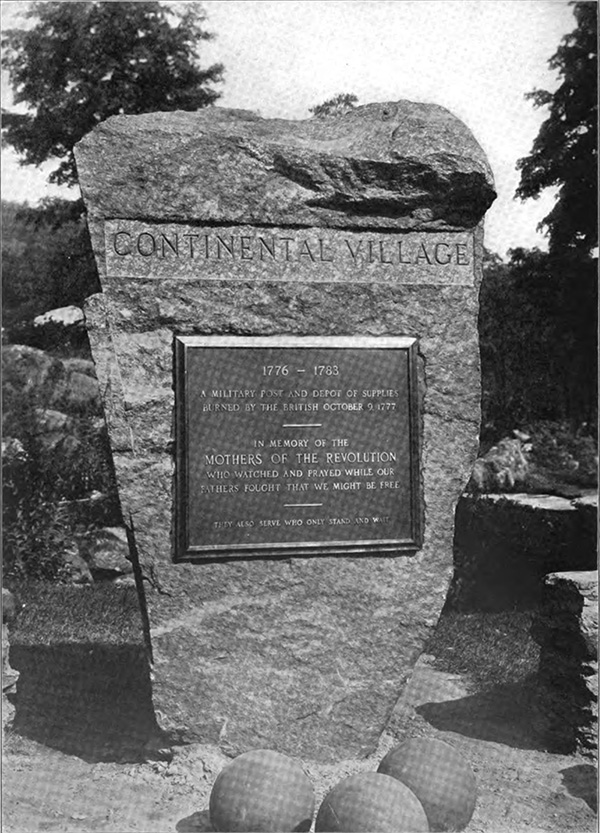Collections Spotlight: Revolutionary Women

Women in the American Revolution Research Guide
Unveiling of the Memorial to the Mothers of the Revolution 1921
Abigail Adams was a well-educated woman who was the second first lady and also a first mother. She famously urged her husband, John Adams, and other members of the Continental Congress to consider the rights of women as they lay the framework for the new nation.
- Today in History: Abigail Adams primary and secondary sources
Elizabeth Drinker, whose husband was imprisoned for a time during the Revolutionary War for lack of support for the Continental Congress, kept a diary 1758 to 1807. The three volumes provide an extensive historical record of the times, including commentary on politics and medical practices.
- The Diary of Elizabeth Drinker National Archives
- Mentions of Elizabeth Drinker in The Guidebook to Historic Germantown 1915
Elizabeth Freeman, born Mum Bett, was the first African American woman and enslaved person to successfully file a lawsuit for freedom in the state of Massachusetts.
- Freedom for Elizabeth Freeman
- Elizabeth Freeman, Her Case for Freedom, and the Massachusetts Constitution National Constitution Center
- Elizabeth Freeman brief bio National Women’s History Museum
- Life Story: Elizabeth Freeman Women & the American Story
Sybil Ludington purportedly rode more than 40 miles on a rainy night on April 26, 1777, when she was just 16, to alert Connecticut militia members of a British attack and to summon troops to defend the area.
- Sybil Ludington’s Ride Washington Evening Star April 14, 1940
- Sybil Ludington bio Historic Patterson, New York
- Did the Midnight Ride of Sibyl Ludington Ever Happen? Smithsonian Magazine March 1, 2022
Mary McCauley, aka. “Molly Pitcher,” and Margaret Corbin were said to have assisted their husbands in battle. Today there is a monument to McCauley at the Monmouth battlefield site. Corbin, who was wounded while fighting, was the first woman in the U.S. to receive a pension on the basis of military service.
- Mary McCauley & Margaret Corbin mentions in Contributions to Pennsylvania History
- The Heroine on Monmouth
- Molly Pitcher image set
- Women in Battle and Margaret Corbin in Continental Congress: A Paper
- Margaret Cochran Corbin in Some Pennsylvania Women During the War of the Revolution
- Celebrating All the Molly Pitchers Folklife Today
Esther De Berdt Reed organized a systematic house-to-house canvassing of Philadelphia and the surrounding area, raising $300,000 for Continental Army troops.
- Esther Reed correspondence
- “Sentiments of an American Woman” Ladies’ Association of Philadelphia
- The Life of Esther De Berdt, Afterwards Esther Reed, of Pennsylvania 1853
- Women in Ephemera
Deborah Sampson disguised herself as a man to serve in the Continental Army, enlisting in 1782 and serving in New York.
- Deborah Sampson portrait 1797
- Life of Deborah Sampson, the Female Soldier in the War of Revolution 1866
- Deborah Sampson House, 280 Wareham Street, Middleboro, Plymouth County, MA
- S.514 – 116th Congress (2019-2020): Deborah Sampson Act
- Deborah Sampson brief bio National Women’s History Museum
Tyonajanegan—Two Kettles Together—fought alongside her husband, a chief warrior of the Wolf Clan Oneidas, in several revolutionary war battles in support of the Continental Army.
- Tyonajanegan brief bio National Park Service
- Oneida Nation Theater: Two Kettles Together Museum of the American Revolution
- Tyonajanegen and Hanyery: Native New Yorkers Three Village Historical Society
Mercy Otis Warren, considered the first American woman playwright, penned plays satirizing British government policies and government officials.
- George Washington to Mercy Otis Warren, June 4, 1790
- Thomas Jefferson to Mercy Otis Warren, November 25, 1790 – first letter and second letter
- History of the Rise, Progress, and Termination of the American Revolution 1805 – book | presentation
- Mercy Otis Warren LOC.gov exhibition items
- H.J.Res.386 – 103rd Congress (1993-1994): To designate September 14, 1994, as “Mercy Otis Warren Day”
- S.J.Res.222 – 103rd Congress (1993-1994): A joint resolution to designate October 19, 1994, as “Mercy Otis Warren Day”
- Mercy Otis Warren: The Secret Muse of the Bill of Rights In Custodia Legis
- Mercy Otis Warren brief bio National Women’s History Museum
Martha Washington was one of the wealthiest women in Virginia and was the first first lady. She married George Washington in January 1759 when she was twenty-seven years old and a widowed mother of two.
- Today in History: Martha Washington primary and secondary sources
Phillis Wheatley was celebrated as an “extraordinary poetical genius” of colonial New England and the first African American woman and only the third American woman to publish a book of poems.
- Today in History: Phillis Wheatley primary and secondary sources
Related resources
